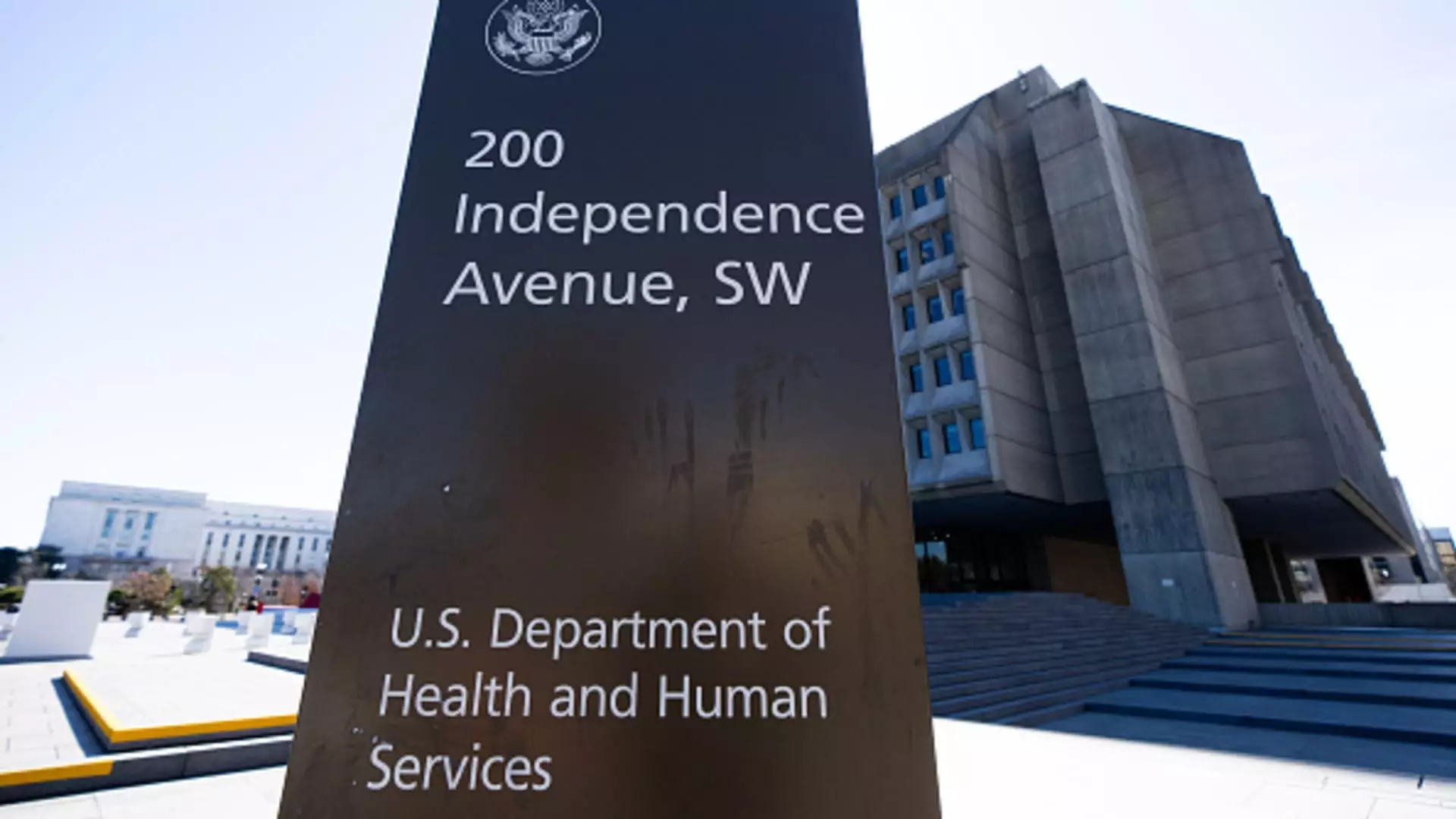In a spectacular display of administrative recklessness, the U.S. Department of Health and Human Services (HHS) has initiated a wave of layoffs that threatens not just the jobs of nearly 10,000 employees but also the health and safety of the American populace. This sweeping overhaul, enacted under the leadership of Secretary Robert F. Kennedy Jr., is framed as a necessary reform, yet it bears the unmistakable hallmark of political short-sightedness and a blatant disregard for the crucial services that HHS provides. This isn’t merely a bureaucratic restructuring; it’s a seismic shift in how public health is managed in a nation already besieged by health crises.
The decision to streamline the workforce comes hot on the heels of President Donald Trump’s incendiary move to curtail collective bargaining rights for HHS employees. Such actions breed a culture of fear and uncertainty, undermining the very morale of federal workers who strive to uphold public health standards. Cutting these jobs during a time when we are grappling with public health emergencies makes one question the intentions behind this drastic measure. America is not merely looking at a return to a pre-COVID status quo; we are engaging in a self-destructive scramble that imperils the well-being of countless citizens.
Consolidation: A False Promise
Kennedy’s announcement to consolidate agencies under a newly minted office, the Administration for a Healthy America, is riddled with inefficacy. Consolidation, in theory, could lead to a more streamlined approach to health management, but this initiative seems more like an attempt to mask the chaos created by deliberate workforce reductions. The rationale behind stripping down HHS to a skeleton crew relies heavily on the simplistic notion that less is more. However, in the intricate field of public health, this is a dangerous fallacy. Can we genuinely expect to tackle issues like addiction services and the monitoring of disease outbreaks effectively with such depleted resources? The glaring answer is no.
Moreover, the cuts are disproportionately targeting areas of high importance, such as the Food and Drug Administration (FDA) and the Centers for Disease Control and Prevention (CDC). With 3,500 job losses at the FDA, including critical positions that set safety standards for food and medicine, we’re heading down a treacherous path. Health crises don’t adhere to restructured timelines or bureaucratic efficiencies; they demand responsiveness and expertise, both of which suffer dramatically under such drastic cuts.
The Ripple Effect: Local and State Level Hazards
The repercussions extend beyond the federal sphere, wreaking havoc on local and state health departments that depend on federal funding. The immediate withdrawal of over $11 billion in COVID-19 related assistance is not just a financial blow—it is a devastating withdrawal of support during critical times. As state and local health officials scramble to assess the full scope of the damage, we can already see the red flags wave: essential jobs are eliminated and public health initiatives are suspended, all of which spell further disaster when infectious diseases resurge.
Crisis management is a team sport, yet the current administration has chosen to bench critical players. The stark reality is that these personnel cuts at HHS are an affront to the very essence of public health, which relies not only on funding but on the intimate knowledge and skills of dedicated health professionals. When communities already have limited access to healthcare, the potential for disaster escalates exponentially.
A Disgraceful Attack on Workers’ Rights
At the heart of these seismic changes lies a troubling trend toward undermining workers’ rights. By eroding collective bargaining power, the Trump administration is sending a chilling message: that public servants—workers dedicated to safeguarding health—are expendable. The loss of collective bargaining rights means employees will have fewer protections against arbitrary firings and workplace retaliation. This situation is ripe for abuse, allowing a already strained system to be exploited further, rendering workers voiceless in times of crisis.
Reports suggest that a significant demographic of CDC employees—who have just begun to explore unions and collective organization—are already facing the blunt force of systematic suppression. This strategy, couched in the language of efficiency, is profoundly regressive, and raises an important question: Are we willing to sacrifice the integrity and autonomy of our civil servants for the sake of political expediency?
A Troubling Future Ahead
The landscape painted by recent cuts and reforms is devoid of compassion and foresight; it is a stark reflection of governing priorities in disarray. The impending destruction this overhaul brings is not just another fiscal maneuver—it’s a precursor to long-term ramifications that the nation cannot afford to ignore. As lives are put at stake and health initiatives falter, leaders must reckon with the moral implications of these choices. The future of American public health hinges on our ability to recognize that health is not merely an expenditure; it is an imperative that must be treated as such.


Leave a Reply